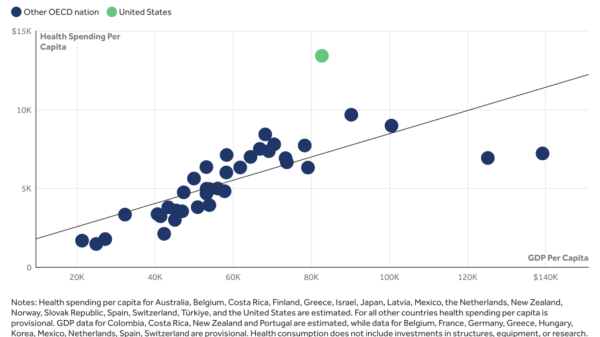Ichiro Suzuki was inducted into the Baseball Hall of Fame this summer. With his nearly unmatched bat control, Ichiro had ten consecutive 200-plus hit seasons and the single-season record of 262 hits.
Ichiro’s Baseball Hall of Fame acceptance speech centered around his duty to the fans and his teammates: “When fans use their precious time to come watch you play, you have a responsibility to perform for them whether we are winning by 10 or losing by 10.”
If you listen to most modern athletes, they spout immediately falsifiable clichés about believing in themselves as a key to success. Fewer talk about their duties and responsibilities.
Ichiro emphasized his “skills” were not “better than others.” Instead, he was on the stage because “daily practice and preparation” along with a willingness to pay attention to “small details” were the “foundation” of his “achievement.” Ichiro was embodying not only modern research on the role of practice but also what Adam Smith, in his The Theory of Moral Sentiments, identified as the desire for “praiseworthiness” over the mere desire for “praise.”
Smith argued that while unmerited applause can delight a weak person, a wise person seeks to earn it. False praise, Smith wrote, “should be more mortifying than any censure, and should perpetually call to our minds the most humbling of all reflections, the reflection of what we ought to be, but what we are not.” If you think influencers, nepo children, or people who got their jobs through DEI are having a happy life, Smith might disagree. He wrote, “It is only the weakest and most superficial of mankind who can be much delighted with that praise which they themselves know to be altogether unmerited.”
Ichiro’s best advice was never to place controlling forces outside yourself. Pitchers don’t beat you; instead, he thought, “it’s because there was something you could have done better by taking responsibility.” That belief led to Ichiro’s consistent duty to improve; he finished his career as one of only 33 players in history with over 3,000 hits.
Adam Smith would have us know that the same mindset Ichiro applied to his career applies to all individuals. Smith left us guidance to become more dutiful and less swayed by our emotions. We can actively choose to step out of the biased narrative playing in our heads, which is always righteously justifying what we do.
Smith famously advised us to turn to the unbiased “impartial spectator” within: “We can never survey our own sentiments and motives, we can never form any judgment concerning them, unless we remove ourselves, as it were, from our own natural station, and endeavour to view them as at a certain distance from us.”
This was not a mere academic exercise; Smith wanted us to be in the trenches, practicing what we are contemplating. “The most sublime speculation of the contemplative philosopher can scarce compensate the neglect of the smallest active duty.”
A sense of duty ensures that we can all work together stably and predictably, even when our personal feelings run amok. We can respect general moral rules, even when life-enhancing personal feelings, such as honesty, gratitude, or kindness, seem to be absent.
If you imagine that Adam Smith gave support for the idea of an individual asserting his self-interest, defined by his passions, against the rest of the world, you probably have never read Smith. Smith was clear that “the great division of our affections is into the selfish and the benevolent,” and we must tame our selfish side.
Smith’s idea of duty was compelling and straightforward. First, he explains humanity “was made for action… to promote by the exertions of [our] faculties… changes in the external circumstances of both [ourselves] and others.”
Next, Smith asked us to honor our purpose so we “may call forth the whole vigour of [our] soul, and strain every nerve, in order to produce those ends which it is the purpose of [our] being to advance.”
Smith revealed that we become worthy of praise through following “general rules of conduct” which he called “a sense of duty, a principle of the greatest consequence in human life, and the only principle by which the bulk of mankind are capable of directing their actions.”
Our good intentions are insufficient and don’t fulfill our duty. Smith wrote, the person “who has performed no single action of importance” but who expresses “the justest, the noblest, and most generous sentiments” is owed nothing.
Smith is giving us a scorecard to distinguish between those worthy of our admiration and those who, through their lack of self-command, are “worthless.”
When we choose to be a worthless person, we are at the mercy of our feelings. I don’t feel like it trumps our duty. Smith wrote that the dependable and principled person “adheres, on all occasions, steadily and resolutely to his maxims.” Ichiro lived this, never wavering until the final out of the season was recorded. This adherence to his duty is precisely what Smith argues separates a person of honor from one who “acts variously and accidentally, as humour, inclination, or interest chance to be uppermost.”
You can watch football for eight hours on a gorgeous fall day rather than throw the football or baseball to your child. You can take satisfaction in berating a co-worker for not seeing things your way. You can think Curb Your Enthusiasm is a guide to living and hold a grudge because someone violated a rule that you made up. You can binge-watch another series rather than cultivating your mind to help maintain freedom. With such actions, Smith would say you have chosen to be worthless, and he wants us to consider making a different choice.
It is “self-command” that allows us to attend to our duty and not choose the path to worthlessness. Smith understands we are “coarse clay” that can never rise to perfection. Yet he defines for us the person of “perfect virtue,” the “object of our highest love and admiration” as “he who joins, to the most perfect command of his own original and selfish feelings, the most exquisite sensibility both to the original and sympathetic feelings of others.”
I invite the reader to do just that. Take a moment and consider a current issue that is creating anxiety and conflict. Notice the inner narrative that is explaining the problem from your point of view. If you can notice it, you can also turn your attention away from your self-justifications. As you do, notice if another perspective that calls to your duty arises.
Ichiro likely never read Adam Smith, but he understood his life was not merely about making himself comfortable. In Ichiro’s transcendent performance, we see the possibilities to improve our own performance in our own endeavors when we attend to our duty. The nihilist purposelessness that many have adopted, philosopher Bernardo Kastrup argues, is a way to “release ourselves from any uncomfortable feeling of responsibility or duty.” For those without a purpose, a sense of duty would immediately improve their lives.
There is more at stake than we may realize. Smith helps us understand that civilization progresses or regresses depending on our adherence to duty and our willingness to overlook our transitory feelings and turn away from society-destroying passions. Smith warned, “the very existence of human society… would crumble into nothing” if a mindset of duty is forfeited and we drift into worthlessness as our default setting for living.

























